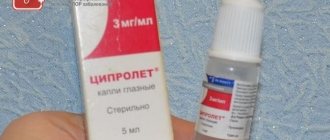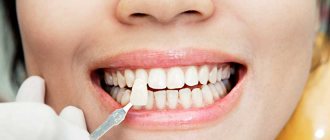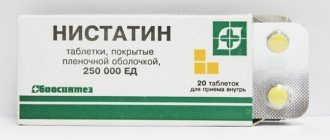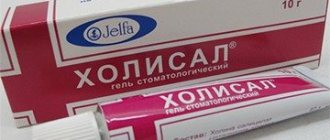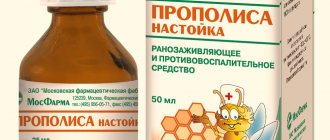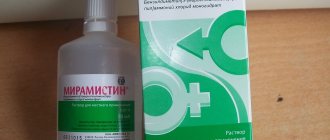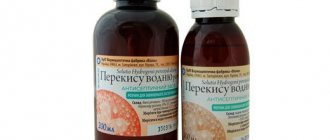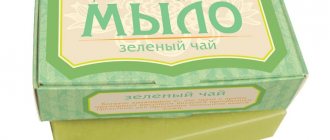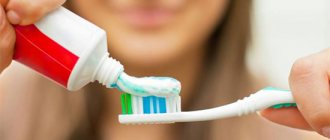14090
Toothache is perhaps the worst thing that can happen to a person. Especially if this happens on weekends when dental clinics are closed.
In this case, a huge number of remedies are often used that can help: traditional medicine recipes, strong painkillers, weak painkillers, compresses, ointments.
Not everyone knows that for this case there are special dental drops that have both an antiseptic, anti-inflammatory and analgesic effect and allow you to wait for the opportunity to visit a doctor relatively painlessly.
Compound
Preparations are most often made based on herbal ingredients, such as:
- Peppermint , which relieves inflammation, prevents the development of infection and disinfects the oral cavity.
- Valerian , which has a local anesthetic effect.
- Camphor , which has an antiseptic effect.
Various agents can be used as a binder, such as ethyl alcohol, glycerin or salicylic acid. Depending on the type, other plant components can be used in them, but the main ones are always mint, valerian and camphor.
The most popular and effective drops for teething in children
To relieve the unpleasant symptoms of teething, many different medications are produced, most often they take the form of ointment, gel, but there are also drops:
- Dantinorm "baby". French homeopathic drops for teething, which are a clear liquid. Contains Indian ivy, chamomile, rhubarb, purified water. The drug relieves pain and inflammation of the gums. There are no age restrictions or side effects.
- Fenistil drops. The drug is not intended specifically for toothache in children. This is an antiallergic drug that is given to babies to eliminate swelling of the nasal mucosa and oral cavity, which often occurs during teething.
- NatraBio is a homeopathic drops that is included in the rating of the best teething remedies for children. It contains extracts of various plants that relieve inflammation and prevent the growth of pathogenic flora in the mouth. They have a sedative effect. The product is dripped under the baby’s tongue; it is advisable to keep them in the mouth for at least 15 minutes, which is the downside of the drops. Therefore, it is better to drip them when the baby falls asleep.
Read more Instructions for using heart drops
Experts do not recommend using the products without consulting a doctor.
How they work
In combination, all components of the drops have the following effects on the diseased area:
- Painkiller . The pain subsides, and the patient can calmly go about his business.
- Antiseptic . Harmful microorganisms filling the oral cavity are destroyed.
- Anti-inflammatory . The development of inflammation slows down and the likelihood of complications decreases.
Important! Dental drops only relieve symptoms, but do not cure the disease. Even if you feel significant relief after taking them, you should still visit a doctor and get rid of the cause.
How does lidocaine affect pregnancy and the fetus?
Lidocaine cannot be considered an absolutely safe drug, but panic after a single use of the drug (not earlier than the second trimester) should not be caused either. The main concerns associated with the use of Lidocaine are based on its ability to easily penetrate the placental barrier, and therefore into the baby’s body.
- The use of anesthesia in the first weeks of pregnancy can cause congenital deformities. The use of lidocaine even externally during early pregnancy is strictly not recommended.
- At later stages, it is necessary to be extremely careful if there is a tendency to arterial hypotension. A dangerous decrease in a woman’s blood pressure can lead to oxygen starvation of the baby.
- Exceeding the permissible dosage can lead to the development of bradycardia in a child.
- Using the product after 28 weeks of gestation may cause premature birth. In the last months of pregnancy, a woman’s abdominal organs experience maximum pressure from the uterus, and blood flow may be disrupted. Pressure in the epigastric area often provokes tightness of the thoracic region, and the pregnant woman may experience shortness of breath. The use of Lidocaine can cause difficulty breathing, decreased blood pressure, and muscle spasms. The listed phenomena can seriously disrupt the course of pregnancy and lead to its completion ahead of schedule.
Indications
Dental drops should be used if the patient has:
- Gingivitis . The disease is accompanied by increased sensitivity of teeth and gums, bleeding and inflammation in the oral mucosa. The drug helps relieve inflammation and reduce sensitivity.
- Caries . With the initial destruction of enamel and dentin, the drug will help relieve pain and stop further damage.
- Periodontitis . Characterized by inflammation and bleeding of the gums around a specific tooth. The drug helps relieve this inflammation.
- Periodontitis . It is characterized by inflammation of the tooth itself, which leads to severe pain. The drug helps relieve both pain and inflammation.
- Severe pain of unknown nature . The drug helps you last until you visit the doctor.
- Teething in babies . There is a special line, drugs from which, without harming the baby’s health, will relieve itching.
- Erupting wisdom teeth in adults . The drug will relieve itching and pain.
- Postoperative period . If surgery was performed in the oral cavity, the drug will prevent complications from occurring.
- Stomatitis . It is characterized by inflammatory processes in the oral mucosa, the occurrence of ulcers, and bleeding gums.
In general, dental drops are a fairly universal remedy. They can always be used when it comes to dental diseases. The main thing is to use them correctly.
Let's find out when to start brushing your child's teeth in a special review.
Well, here we’ll talk about the treatment of ulcers on the oral mucosa.
Follow the link: https://zubovv.ru/hirurgiya/udalenie-zubov/chem-mozhno-poloskat-rot-posle.html - read how to rinse your mouth after tooth extraction.
Why are painkillers dangerous during pregnancy?
Most analgesics have a small molecular weight. When it enters the gastrointestinal tract, and then into the blood, the anesthetic breaks down into thousands of tiny particles - this is a necessary condition for manipulation at the level of nerve receptors and pain elimination.
The analgesic easily penetrates the placental barrier into the baby’s blood and organs, which leads to negative consequences in the form of:
- Improper intrauterine development of the fetus due to the toxic effects of drugs (teratogenic effect).
- Changes in blood pressure and blood pressure in a pregnant woman.
- Disorders of the kidneys and liver in the baby and mother.
- Water retention in the body and the appearance of swelling, gestosis.
- Irritation of the gastrointestinal tract, exacerbation of gastritis and peptic ulcers.
| Name of medicine | FDA Hazard Level | Use during pregnancy | Use during breastfeeding |
| Artikain | WITH | Possible after consultation | Unknown |
| Lidocaine | B | Can | Can |
| Mepivacaine | WITH | Possible after consultation | Can |
| Acetaminophen | B | Can | Can |
| Ibuprofen (Adex, Advil) | B – in the first and second trimester, D – in the third trimester | It is better not to use in the third trimester | Avoid use |
| Aspirin | C – in the first and second trimester, D – in the third trimester | It is better not to use in the third trimester | Avoid use |
| Clindamycin | B | Can | Can |
| Erythromycin | B | Can | Can |
| Metronidazole | B | Can | Can |
| Penicillin | B | Can | Can |
| Tetracycline | D | Avoid use | Avoid use |
Contraindications
Like any medicine, dental drops have contraindications. They cannot be used:
- For people with epilepsy , plant components can trigger a seizure.
- People with allergies to plants included in the drug.
- For people suffering from fainting spells , the drug may cause fainting.
Use with caution:
- People with hypotension.
- People with heart rhythm disorders.
If the composition contains ethyl alcohol, the drops are contraindicated for people suffering from alcoholism, as they can cause a breakdown.
How to use it correctly
There are several ways to use dental drops:
- Tampons . They are used if a carious cavity has already formed in the diseased tooth. Use 2-3 drops to moisten a piece of cotton wool suitable for the size of the cavity, then put it inside and leave it there for 10 minutes. You cannot use the same cotton wool twice.
- Rinse . It is used for any inflammatory processes in the oral cavity - stomatitis, gingivitis, periodontitis, periodontitis. Add 10-12 drops to a glass of warm water, stir and rinse your mouth in the morning and evening after brushing your teeth.
- Rubbing . They are used if the diseased tooth does not yet have carious cavities, if we are talking about ulcers that arise from stomatitis, when the patient is cutting a wisdom tooth. A small piece of cotton wool is moistened with 2-3 drops of solution and lubricated problem areas. This should be done in the morning and evening after hygiene procedures.
Important! If, after using the drops, itching, burning or acute pain occurs, this means that the product is not suitable and you need to use another drug or another way to combat the symptoms of the disease.
Types of the drug
Dentinox . A dental solution used to relieve pain during teething in children and teething in adults. Has strong analgesic and anti-inflammatory effects. Contains lidocaine and chamomile extract. Does not cause allergic reactions and has no contraindications.
Phytodent . An alcohol tincture containing a large amount of plant extracts - calendula flowers, chamomile, calamus rhizomes, nettle. Relieves pain and disinfects the oral cavity during stomatitis and other inflammatory processes in the oral cavity. Contraindicated in children under 12 years of age.
Denta . Dental drops available in glass bottles of 10 and 20 ml. Contains camphor oil and ethyl alcohol. Recommended for quick relief of toothache due to caries and pulpitis. The drug is not intended for use in infants.
Dantinorm . Homeopathic pain-relieving tincture for topical use, containing only safe components of plant origin. Facilitates the process of teething in infants.
Stomagol . Used for infectious and inflammatory diseases of the oral cavity. Contains rhubarb extract and salicylic acid. Relieves irritation, has an analgesic and anti-inflammatory effect.
Description of the dosage form Odontalgic drops
Transparent liquid of reddish-brown color with a characteristic odor.
pharmachologic effect
Combined drug. It has a local irritant (distracting), moderate analgesic, antiseptic, anti-inflammatory and sedative effect.
Indications
Toothache (before dental care is provided).
Contraindications
Increased individual sensitivity to the components of the drug, children under 12 years of age.
Carefully
Children's age over 12 years.
Directions for use and doses
Locally. A cotton swab moistened with 2-3 drops of the drug is applied to the diseased tooth for 5-10 minutes.
Side effects
Allergic reactions are possible. If the drug comes into contact with the oral mucosa, it may cause a burning sensation.
Denta
Available in glass bottles or special dropper bottles of 10 and 20 ml.
The tooth solution has a distinct smell of camphor and is transparent.
Composition ( per 1 ml ):
- chloral hydrate (333 mg) – sedative, analgesic, relieves cramps and spasms;
- racemic camphor (333 mg) – an antimicrobial agent, locally relieves irritation and inflammation, improves blood flow;
- ethanol, 96%.
Important! The drug is contraindicated for children; It is not recommended to use drops for patients with pathologies of the respiratory system , as well as for people prone to seizures.
Dentaguttal
Local irritant (distracting) agent Dentaguttal. The drug is packaged in special glass dropper bottles of 10 ml , also available in glass bottles with a screw neck and an airtight lid. The solution is reddish-brown in color with a pronounced aroma.
Compound:
- mint leaf oil (3.1 g) - a natural antiseptic, contains menthol, cineol, tannins, flavonoids, organic acids; soothes, relieves pain due to the expansion of internal blood vessels;
- synthetic camphor (6.4 g) - antiseptic, disinfects affected areas, eliminates pain;
- tincture of valerian rhizomes (100 ml) - essential oils, isovaleric acid has a moderate, stable sedative (relaxing) effect; acts as an antispasmodic.
For children under 10-12 years of age, use only on the recommendation of a doctor.
Photo 1. Drops for toothache Dentaguttal, 10 ml, from the manufacturer MosPharma.
Description of drops
Dental drops (Dental guttas) is a medicinal solution based on valerian, which is successfully used to treat inflammatory processes in the oral cavity and relieve pain. Dental guttas has a soothing, anti-inflammatory and antiseptic effect.
Composition of drops:
- racemic camphor;
- peppermint oil;
- valerian extract.
Camphor destroys microbes and has bactericidal properties. Mint disinfects and softens inflamed tissues, while valerian soothes tissues. In combination with these herbal ingredients there is:
- menthol;
- thymol;
- glycerol;
- alcohol;
- chloral hydrate;
- phenyl salicylate.
The drug is a reddish alcohol solution, available in glass vials of 5/10/30 ml. To pacify the pain, you should drop a few drops onto a cotton ball and apply it to the sore tooth.
The bottle with drops should be stored in a dark, closed space, out of reach of children and cats. Exposure to sunlight on the bottle is unacceptable. The shelf life is indicated on the packaging - 2 years.
This is interesting: Periodontal pocket: causes of pathology, treatment and prevention
Indications
How to use dental drops, what are the nuances of application? Dental guttas is taken in the following cases:
- gingivitis;
- periodontitis;
- caries;
- periodontitis;
- other diseases.
The medicine helps relieve acute pain from carious lesions, as well as in the postoperative period of treatment of gums and bone tissue.
Contraindications
The use of drops is prohibited due to individual intolerance to the ingredients of the drug, bronchial asthma, epilepsy and frequent seizures.
You should also be careful when using Dental guttas if the mucous membrane next to the diseased tooth is damaged. If unpleasant symptoms appear, the solution should be washed off with water.
Dental guttas is not recommended for use in children under twelve years of age.
Side effect
If the medicine gets on the mucous surface, it may cause a burning sensation. Before using dental drops, please note: the medicine contains ethyl alcohol.
The likelihood of side effects is extremely low, however, the following dissonance may occur:
- severe irritation at the site of drug localization: burning;
- nervous system disorders: agitation or drowsiness, tremor, ataxia, convulsions;
- cardiac dysfunction: bradycardia;
- disruption of the respiratory system: bronchospasm;
- allergic manifestations of varying degrees of intensity: from urticaria to anaphylactic shock.
Dental guttas are available without a prescription, so before use, carefully read the appendix: “Dental drops instructions for use.”
JSC Samaramedprom
Dental drops for topical use, Samaramedprom (Russian manufacturer), 10 ml. The drug is packaged in glass bottles with a sealed cap, cardboard packaging.
Compound:
- camphor (6.4 g) - an analeptic agent that stimulates blood microcirculation;
- peppermint essential oil (3.1 g) - a natural antiseptic, relieves pain, refreshes;
- valerian tincture (100 ml) - has a calming effect, relieves irritation and spasms (relaxes the muscle wall of blood vessels, reduces their tone).
The plant base of the drug may cause an allergic reaction (burning of the mucous membrane, redness); Children under 12 years of age and pregnant women should use with caution.
Features of use for children
A child’s body is more sensitive than an adult’s body, which is why the same remedies that are used to treat adults should not be used to treat small children.
- 0-3 .
The main problem that arises with teeth in babies is itching and burning, which do not give the child rest during the teething period. You cannot use regular dental drops. However, there is a special line for infants, which contains the drug as soft as possible and approved for use. - 3-12. During this period, children have baby teeth, where the most common problem is caries. You should use dental drops with caution, diluting them with water in a 1:1 ratio and using them only once a day.
- 12-18. During this period, you can use dental drops without making a difference between a child and an adult.
Important! If the drug contains ethyl alcohol, it is better to choose another product, since alcohol can harm the child.
Side effects
If you take dental drops according to the instructions for use and do not exceed the duration of the course of treatment, then no adverse reactions should occur.
A completely different situation may occur if this drug is swallowed. Even a small dose leads to the following systemic manifestations:
- headache,
- increased blood pressure,
- nausea.
Such symptoms may also appear if dental drops are used for longer than 7 days.
Local negative reactions occur rarely. They are more associated with hypersensitivity. These are redness, burning, irritation, swelling, hyperemia of the mucous membranes, an increase in the size of the tongue, and increased salivation. These symptoms disappear immediately after stopping the drug.
If the medicine was accidentally taken orally, it is necessary to rinse the stomach with warm saline solution and take a sorbent, for example, Enterosgel.
Features of use during pregnancy
A child who is in the mother’s womb is in many ways more vulnerable than one who has already been born.
- I trimester .
At this time, the fruit is just forming - the foundations are being laid. Any intervention at this stage can lead to disability of the unborn child. That is why, if a toothache occurs, you should immediately consult a doctor and not use dental drops without consulting him. - II - III trimester . At this time, the child’s condition is already more stable, so if there are no other contraindications, dental drops can be used, if possible, first consulting with a doctor.
Important! It is worth choosing drops that do not contain ethyl alcohol.
An effective remedy for toothache – fast-acting dental drops
A toothache that takes you by surprise - at night, on a business trip - requires immediate elimination, since a visit to the dentist is postponed for some time, and there is no strength to endure the painful sensations. Among the proven remedies, dental drops, which cope well with this task, are undeservedly forgotten.
High quality dental drops
Dental drops during pregnancy
During pregnancy, the female body undergoes various transformations. First of all, all its activities are aimed at the life support of the fetus, and only then the body “thinks” about the mother. Such work for two does not bring health to a pregnant woman, and her immune system can fail at any moment.
Already in the fifth to seventh week of pregnancy, the fetus develops the rudiments of teeth, which actively grow from the five-month period of intrauterine development. At this time, a significant amount of calcium and phosphorus is redistributed from mother to baby.
This means that a pregnant woman will inevitably face dental problems. In most cases, toothache occurs in the first and third trimesters.
It’s rare that any representative of the fair sex can boast that pregnancy and lactation did not cause the loss of a single tooth.
Severe tooth pain during pregnancy significantly limits the list of medications that the expectant mother could take if she were not expecting a baby.
But you can use dental drops during pregnancy, but only under the following conditions:
- the pregnant woman has no allergic reactions to the components of the drug;
- drops do not contain alcohol;
- the dose does not exceed that recommended by the manufacturer.
The method of using dental drops for pregnant women is no different; you just need to carefully check the composition of the drug for the presence of alcohol. If this is not found, then you can safely use dental drops during pregnancy from this manufacturer. The same principle is followed if toothache occurs during lactation.
It is worth mentioning separately that dental drops are used for children. This is relevant for young parents during the period when the baby is teething.
After all, it is problematic to give pills to a small child, and without painkillers it is impossible to relieve a toothache. In this case, dentaguttal will come to the rescue, as it relieves toothache without consequences for the baby’s health.
Toothache drops for children are sold in small packages, which helps avoid overdose.
Features of use during lactation
If the composition does not contain ethyl alcohol, the drug can be used without fear. The remaining components do not pass into breast milk and do not affect the baby’s nutrition in any way.
We will explain what to do if your wisdom tooth hurts in a new article.
In this publication you can see a photo of a clasp denture of the upper jaw.
Here: https://zubovv.ru/krasota-i-uxod/narashhivanie/zubov-tsenyi-na-protseduru.html - find out how much it costs to grow a tooth.
What are they?
There are several types of dental drops. They differ in the additional components included in the preparation and the base, which is a binder.
- " Dentinox ".
It is used to relieve pain and itching when teeth are cutting, both “eights” in adults and baby teeth. The drug contains a small proportion of lidocaine and chamomile extract, due to which it has a strong analgesic and anti-inflammatory effect. It has no contraindications, causing allergies in very rare cases. - " Phytodent ".
A preparation based on ethyl alcohol, containing a large number of plant components: calendula, chamomile, nettle, calamus. Well suited for the treatment of stomatitis and rinsing the mouth for inflammatory diseases. Contraindicated for children under 12 years of age, nursing women and people suffering from alcoholism. - " Denta ". Another drug based on ethyl alcohol. It relieves pain well, even if the patient no longer has caries, but pulpitis. Contraindicated in children under 12 years of age, nursing women and people with alcoholism.
- " Dantinorm ". A product based on purified water, which contains exclusively herbal preparations. Great for relieving itching in babies and relieving toothache in pregnant women. It has no contraindications and rarely causes allergies.
- " Stomagol ". Used for inflammatory gum diseases. Contains rhubarb root and salicylic acid, suitable for children and pregnant women. Copes well with inflammation, swelling and itching. Rarely causes allergies.
What is better - drops or tablets?
Important! Products consisting of herbal components are more preferable than chemical-based medications. Drops begin to act much faster than tablets. This is a significant advantage of the drug. They exert their effect immediately after they fall on the aching tooth, while the tablets are first absorbed into the blood, and then the active substances reach the source of pain. Thus, the drops have a local effect, and the tablets are distributed throughout the body. Advantages of dental drops:
- the main component of the drug is valerian root tincture, which gently acts on the source of pain, soothing the irritated mucous membrane;
- camphor oil perfectly disinfects and disinfects the cavity of a diseased tooth;
- peppermint oil also has antiseptic, anti-inflammatory properties and can destroy bacteria;
- the drops begin to act immediately after contact with the sore spot, there is no need to wait long for the analgesic effect;
- such drugs have a minimum of contraindications for use (usually they cannot be used by people suffering from epilepsy, seizures, women during pregnancy and infants);
- These products are generally safe and have no side effects, unlike most chemical-based painkillers.
This is interesting: The smell of acetone from the mouth in an adult: causes, diagnosis and treatment
Tablets are the most common type of medicine used for toothache, but do not forget about the side effects: destruction of tooth enamel, stomatitis, gastrointestinal disorders, nausea, feeling of bloating, loss of appetite, constipation or diarrhea, indigestion, etc. .d.
Precautions
Drops should be used carefully, following simple rules:
- A slight burning sensation that occurs after using the drops is normal if it lasts no longer than 5 minutes. If longer, you need to stop exposure to the drops and rinse your mouth with warm water.
- The drops should be stored in a cool, dark place out of the reach of children, otherwise they may spoil.
- Drops should not be taken orally - this can cause diarrhea, vomiting and severe drowsiness.
- The drops cannot be used to numb other parts of the body.
- Drops should not be used too often - no more than three times a day.
- Before use, you need to rinse your mouth with warm water and remove any remaining food from the carious cavity.
- Drops should not be used during flux.
Prices
Dental drops are very affordable. They can be found in pharmacies at prices ranging from 5 to 50 rubles . It depends on the specific pharmacy chain and the specific drops.
Important! Despite the fact that dental drops can greatly relieve pain, relieve itching, burning and swelling, completely relieving the patient of the symptoms of the disease, they are not a means of treating it. Therefore, as soon as the opportunity arises, the patient should visit a dentist.
We will be told in the following video what not to do for toothache, and what the consequences of self-medication may be:
If you find an error, please select a piece of text and press Ctrl+Enter.
Tags: toothache, dental drops, medicine
Did you like the article? stay tuned

